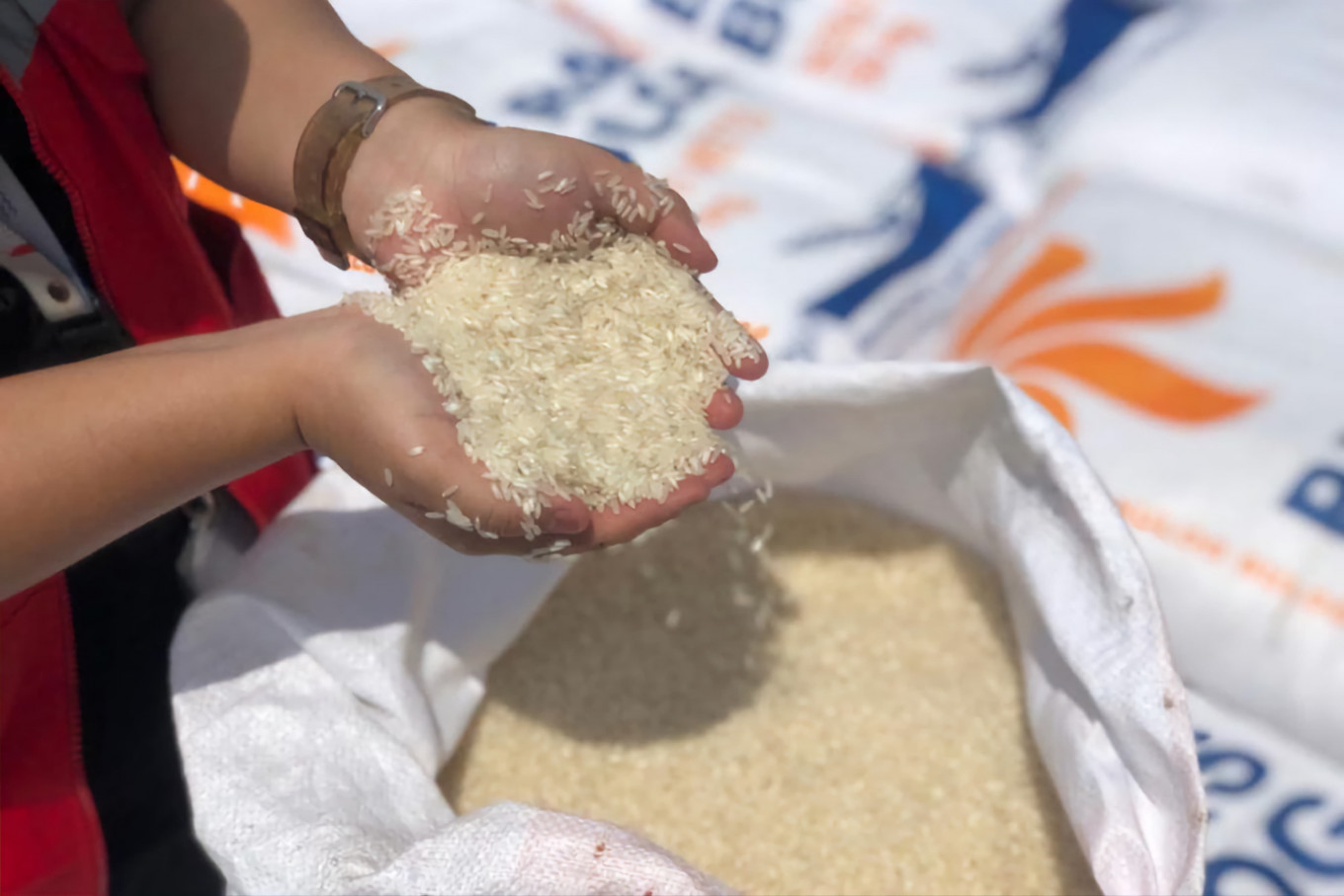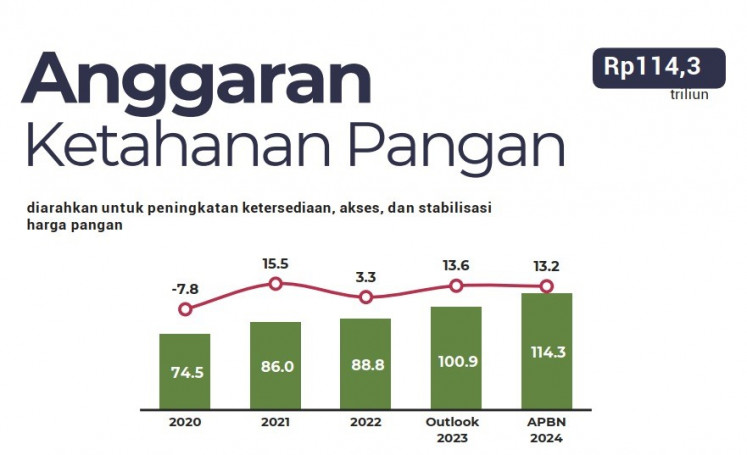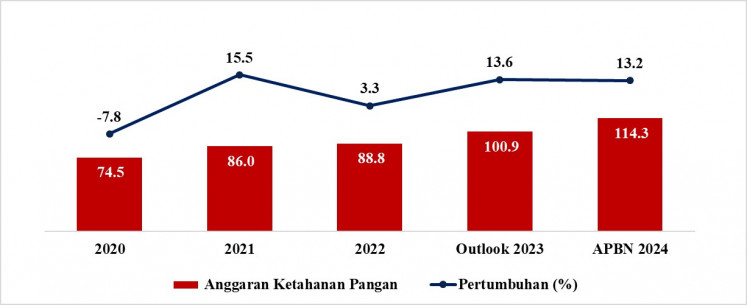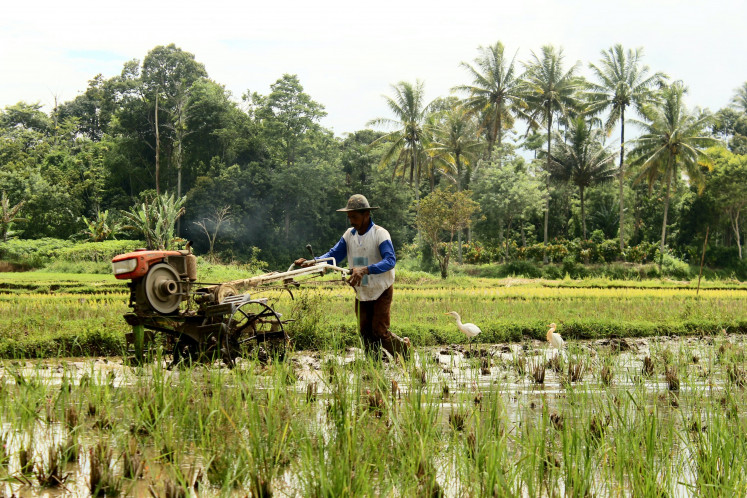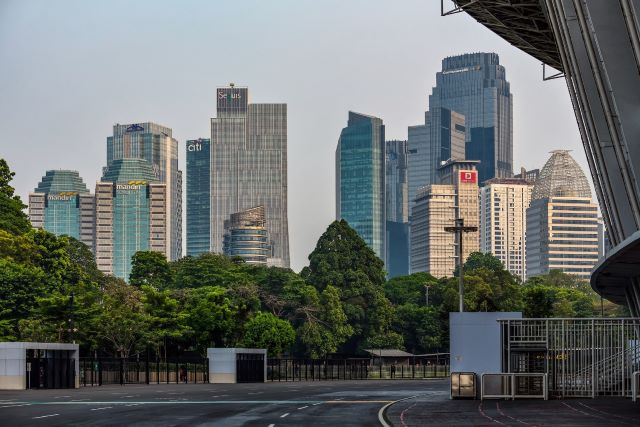Popular Reads
Top Results
Can't find what you're looking for?
View all search resultsPopular Reads
Top Results
Can't find what you're looking for?
View all search resultsAnalysing Indonesia's 2024 food security policy
In an effort to face the challenges in food production, which is not yet optimal, the government has directed its attention to product optimization.
Change text size
Gift Premium Articles
to Anyone
Food production has not yet reached its peak
Indonesia continuously makes strides to increase its national food security. A number of policies and strategies have been initiated by the government to overcome various challenges, maintain supply stability and increase production.
In an effort to face the challenges in food production, which is not yet optimal, the government has directed its attention to product optimization. Although the country has great potential in the agricultural sector, food production has not yet reached its peak.
Several main obstacles exist, namely limited infrastructure, land conversion, limited human resources, damage to infrastructure, disturbances by plant pests and the impact of climate change.
On the other hand, attention is also focused on obstacles in the food supply chain. Geopolitical dynamics, disparities in supply between time and between regions, as well as climate and weather uncertainty can hamper the smooth running of supply chains, which in turn can affect the availability and stability of food prices.
Development policy in the field of food security 2024
The government has also initiated several strategic policies to be implemented in 2024. The focuses include an increase in domestic production and strengthening research and fishing capacities for fishermen.
Meanwhile, to strengthen farming institutions, the government is participating in the formation of farmer corporations. This aims to provide better bargaining power to farmers regarding market access and financing.
Financial support is also a focus, by providing subsidies and direct assistance to farmers to increase the availability of production capital. Farming business protection through agricultural insurance is also emphasized to reduce the financial risks that farmers often face.
Meanwhile, the acceleration of development and food infrastructure is realized through the development of the food estate area, becoming a center for sustainable food production with integrated infrastructure.
Strengthening national food reserves is also a priority, with increased storage, distribution capacity and better coordination between government and the private sector.
Hence, the 2024 food security development policy is expected to create a strong foundation for achieving sustainable and comprehensive food security in Indonesia.
Increase in resilience budget
The budget allocated for food security will specifically be directed at efforts to increase the availability, accessibility and stability of food prices. The main focus of this budget allocation is to ensure that food supplies are sufficient to meet community needs, while creating a system that facilitates community access to this food.
Moreover, several efforts are also directed at stabilizing food prices so that price fluctuations can be managed effectively and providing certainty and protection for consumer purchasing power.
By strategically allocating funds for these three key aspects, the government is committed to creating an environment that supports national food security holistically, ensuring that every level of society can benefit.
The following is the development of the food security budget from year to year which is increasing in line with progressive government policies:
(Courtesy of Finance Ministry)Graphic revision:
(Courtesy of Finance Ministry)Prioritizing output target
A series of target outputs will be prioritized to achieve stronger food security. Agricultural areas are the main focus with a target area of 304,000 hectares of rice cultivation, 90,000 hectares of corn and 184,650 hectares of soybeans.
To increase access to, and the availability of, food, the policy includes the Development of 100 Villages with Diverse, Balanced and Safe Nutrition (B2SA). In the fisheries sector, environmentally friendly efforts are demonstrated through the assistance of 17,000 pieces of fishing equipment and the provision of 300 chest freezers.
In addition, training was provided to 29,173 people in the maritime and fishery community. In the context of pond farming, the rehabilitation of 10 pond channels is an important step.
An increase in irrigation infrastructure can be seen from the construction of an irrigation network covering an area of 4,000 hectares through the center and 25,328 hectares through the regions, as well as the construction of 23 advanced dams and a new dam.
(Courtesy of Finance Ministry)The rehabilitation of the irrigation network covers an area of 38,000 hectares through the center and 96,779 hectares through the regions. This effort will be strengthened by the construction and rehabilitation of 3,573 water sources, 3,624 agricultural roads and 459 animal feed processing facilities.
At the same time, construction and rehabilitation of facilities and infrastructure will be carried out at 65 fishing ports, at 184 seed centers and through food and agricultural security funds that will be allocated to 1,350 community groups.
With this strategy and concrete steps, the government hopes to achieve the goal of more resilient food security by 2024. All levels of society are expected to support the implementation of this policy to create sustainable and comprehensive food security in the country.
Source: The Finance Ministry

